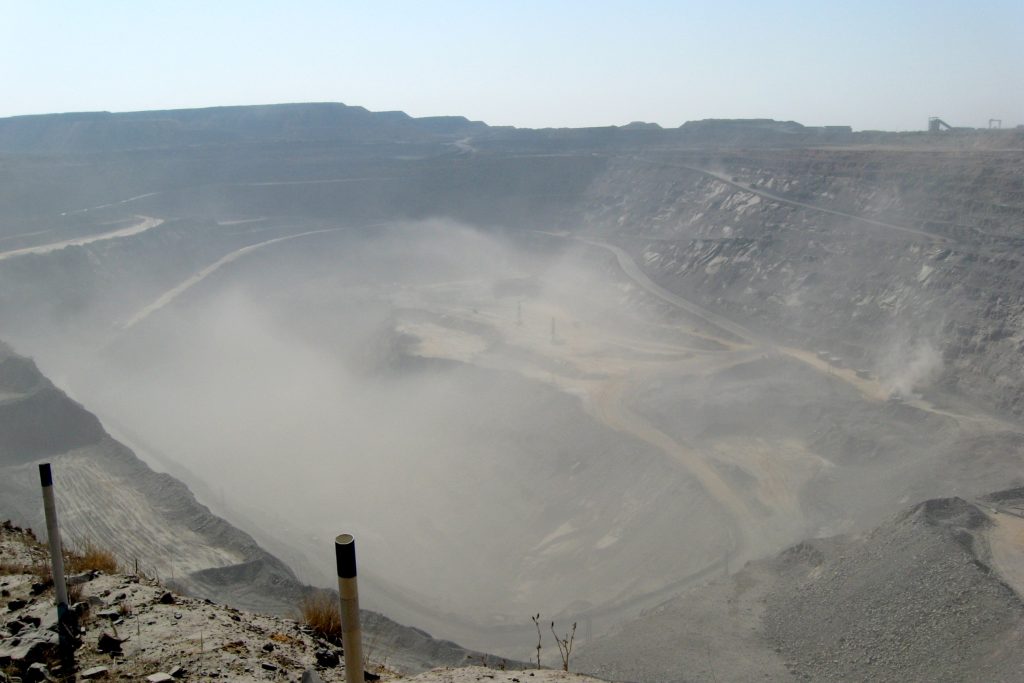A Bumpy Road Ahead? Botswana Faces Economic and Political Struggles Ahead of its 2024 General Elections
For years and years, Botswana was considered one of Africa’s model states, both with regards to the strength of its democratic institutions and to the potency if its economy. Ahead of this year’s elections in October, however, the country’s future is more uncertain than ever. Inequality, climate change and a political feud have been the driving factors.
A model of democracy, good governance, and pragmatic policy, Botswana has, in the words of Robert Guest, “been governed sensibly, cautiously, and more or less honestly [since independence].” In an age where democracies have been backsliding, Botswana has maintained its democratic reputation and continued to engage stakeholders down to the rural level of governance through its Kgotla system. Based on public meetings, community councils, and traditional law courts, this political culture continues to promote confidence in the country’s institutions and governance. While these strong principles have propelled the nation through decades of political and economic success, Botwana’s responses to current challenges including the ruling party’s dominance and economic fault lines, however, will determine whether this success will continue into the future.
Botswana is the oldest continuous multiparty democracy in Africa. Its democratic roots trace back to the colonial era, when the British only exercised indirect rule over its Bechuanaland Protectorate, allowing its indigenous institutions and its leadership of chiefs to flourish. Sir Seretse Khama, as Botswana’s first President and leader of the Botswana Democratic Party, first translated those effective tribal structures into Botswana’s post-independence governance by prioritizing the role of local leaders, upholding protections for citizens and securing freedom of expression for the media. After his death in 1980, the legacy of the BDP has carried on and the party has won every general election ever since. Ironically, this means that despite Botswana’s status as a flourishing multiparty democracy, only one party has ruled through the nation’s 57-year history. Today, this legacy of the BDP’s dominance is being challenged, however, by his son.
Political Transformation in Botswana and the BDP’s Dominance
After Sir Seretse Khama’s death, he was succeeded by Ketumile Masire, Festus Mogae, and eventually his son Ian Khama, in 2008. As per the constitution, after serving his maximum two 5-year terms, Ian Khama handed over power to his then Vice President, Mokgweetsi Masisi. Against the backdrop of this legacy of succession within the BDP, support for opposition parties had been steadily growing, with 45 % of the popular vote in favor of all opposition parties combined, against a dwindling 53 % for the BDP.
This rise in opposition support was further fueled by a fall out between Masisi and his predecessor, Ian Khama. Khama has claimed that Masisi has “totally undermined democracy, human rights, and the rule of law” since coming to power, and has resultantly departed from the BDP to form the Botswana Patriotic Front (BPF). This fall out, as per Masisi’s office, came in part due to Masisi’s refusal to appoint Ian’s brother, Tshekedi Khama, as Vice President in 2019, among other such requests that would give Ian a more active role in Botswana’s leadership despite the constitutional limit on his presidency. Ahead of the upcoming elections in October, this splintering of the BDP and Khama’s opposition against Masisi could challenge the dominance of the BDP. If the opposition parties are able to overcome factionalism and slightly increase their popular support, 2024 may mark the end of a 57-year legacy of the BDP’s rule in Botswana.
Economic Turbulence: The Death of Diamonds?
Post independence, Botswana’s consistent economic growth was driven almost entirely by its most precious resource: diamonds. Alongside the partially state-owned De Beers Group, Botswana established Debswana, a joint venture that quickly grew to become one of the world’s largest diamond suppliers by value. Botswana’s rich diamond reserves fueled decades of growth — second to none in the region — however, a slow pace of diversification has kept Botswana’s economy dependent on diamond revenue into the present.
In the first quarter of 2024, Debswana’s diamond sales fell 48 % due to decreased demand and competition from lab-grown diamonds, with major consequences including rising unemployment and economic uncertainty. This uncertainty has only been exacerbated by the BHP group’s recent takeover attempt of Anglo American, the majority shareholder of De Beers, which triggered a hasty attempt by Anglo American to sell their majority stake in De Beers. Many related negotiations entailed complex restructuring that would directly impact elements of their work in Botswana. Although this acquisition attempt has since failed, it helps to underscore the extent of exposure the government of Botswana has to De Beers and other major players in the diamond space. Not surprisingly then, despite its strong GDP-per-capita numbers, more nuanced economic indicators are pointing in a different direction: For example, the country’s score for socioeconomic development in the Bertelsmann Transformation Index (BTI) has fallen from 5 points to 4 out of a maximum of 10 points due to continuously high inequality, which is as also further underlined by a Gini index of 53.3 and a high poverty rate of 38% rising also due to growing youth unemplyoment.
With the hopes of limiting this diamond-dependence and triggering growth in high-value sectors stifled by the pandemic, Botswana has adopted the Reset Agenda, which hopes to accelerate economic diversification, empower youth and increase employment opportunities. Further, attempts have been made at promoting local industry and economic self-sufficiency through bans on imports of fresh-produce and water, through which the government hopes to develop economic resiliency to prepare for extreme weather conditions caused by climate change. Given the country’s high on rain-fed agriculture and, it is all the more vulnerable to changes in rainfall intensity and droughts. At the same time, Botswana’s strong financial institutions, exemplified by their robust banking system and relatively effective monetary stability from the Bank of Botswana are promising indicators that Botswana has the tools required to overcome looming economic turmoil. Still, diversification and inequity remain pressing issues that will undoubtedly persist for years to come and will certainly also be central issues in the upcoming general elections in late October, which are shaping up to be the most competitive in the nation’s history.
A version of this article was first published by the Fair Observer.

